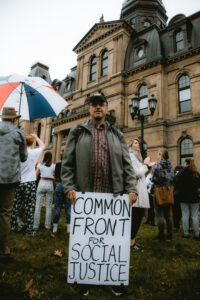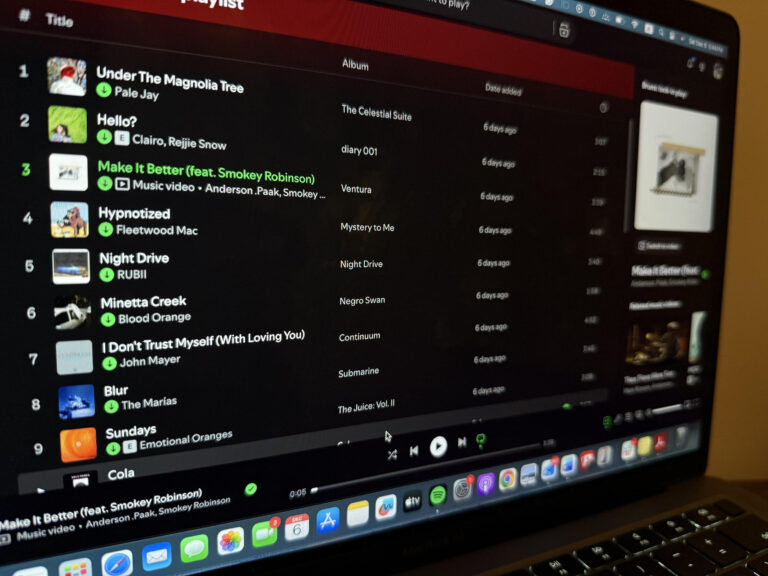The alliance between the Wolastoqiyik, Mi’kmaq, and Acadian peoples which dates back to the 17th and 18th centuries was reinforced on Tuesday, October 25th when they joined forces in protest of Premier Higgs’ infringement on their respective language rights.
Higgs’ Disregard for Minority Rights Results in Protest


On Tuesday afternoon, the Société de l’Acadie du Nouveau-Brunswick (SANB), Wolastoqey Nation in New Brunswick (WNNB) and Mi’gmawe’l Tplu’taqnn (MTI) organized a Tintamarre- the Acadian tradition of marching through the community making as much noise as possible- in front of City Hall and the Legislative Assembly.
The organizations gathered to speak up against the provincial government’s decision to abolish the French immersion program, but also to hold the Premier accountable for his disregard for multiculturalism and multilingualism, both self-proclaimed crucial components of the province’s identity.
In his resignation letter dated October 13th, the now former Minister of Education and Early Childhood Development, Dominic Cardy, called attention to Premier Higgs’ disregard for minority rights. His letter also stated Higgs’ plans to eliminate the French Immersion program in the province by next fall, which Higgs has since confirmed. Cardy succinctly sums up Higgs’ views on multiculturalism during his term as Premier.
“Your efforts to delay or undermine work related to reconciliation between our linguistic and cultural communities have been a missed opportunity to unite our province, to celebrate a strong francophone culture and to lead efforts to build a strong and inclusive anglophone culture while pursuing reconciliation with First Nations.”

St Mary’s First Nations Chief Allan Polchies spoke passionately of the maltreatment of his people and culture, claiming “Premier Higgs has come up with some ridiculous policies and procedures, increasing all the heartache that our people are going through, right from education to language, and of course even denying the unseeded and surrendered territory in their memos throughout the province of New Brunswick.”
Polchies continues in defence of the French Immersion program and language rights, “When you speak your language, you speak your identity, and you speak your culture.”
The speakers mentioned also the repercussions the Indigenous cultures faced when their language rights were abolished over the course of Canada’s history. There is a general feeling of anxiety that the Acadian culture will phase out if certain language programs are not encouraged in the education systems.
“It’s not only for our rights,” says Bouctouche native Marie-Anne Leblanc, “When I was a young girl I had the opportunity to learn another language, which was English because my maternal tongue is French. I would like everybody to have that opportunity if they choose to.”
She advocates for the French Immersion program in schools, because youth is the easiest time to learn a new language, and the future is in the hands of the youth.

“Our diversity was the catalyst that drove us to organize this event for today,” claimed Polchies, “Today we are combining our voices to advocate for the respect for the First Peoples and minority groups here in New Brunswick.”
In front of City hall and the Legislative Assembly, the Wolastoqiyik, Mi’kmaq, and Acadian peoples rallied for their voices to be heard in their respective languages.
Keep in touch with our news & offers
Subscribe to Our Newsletter
Thank you for subscribing to the newsletter.
Oops. Something went wrong. Please try again later.






